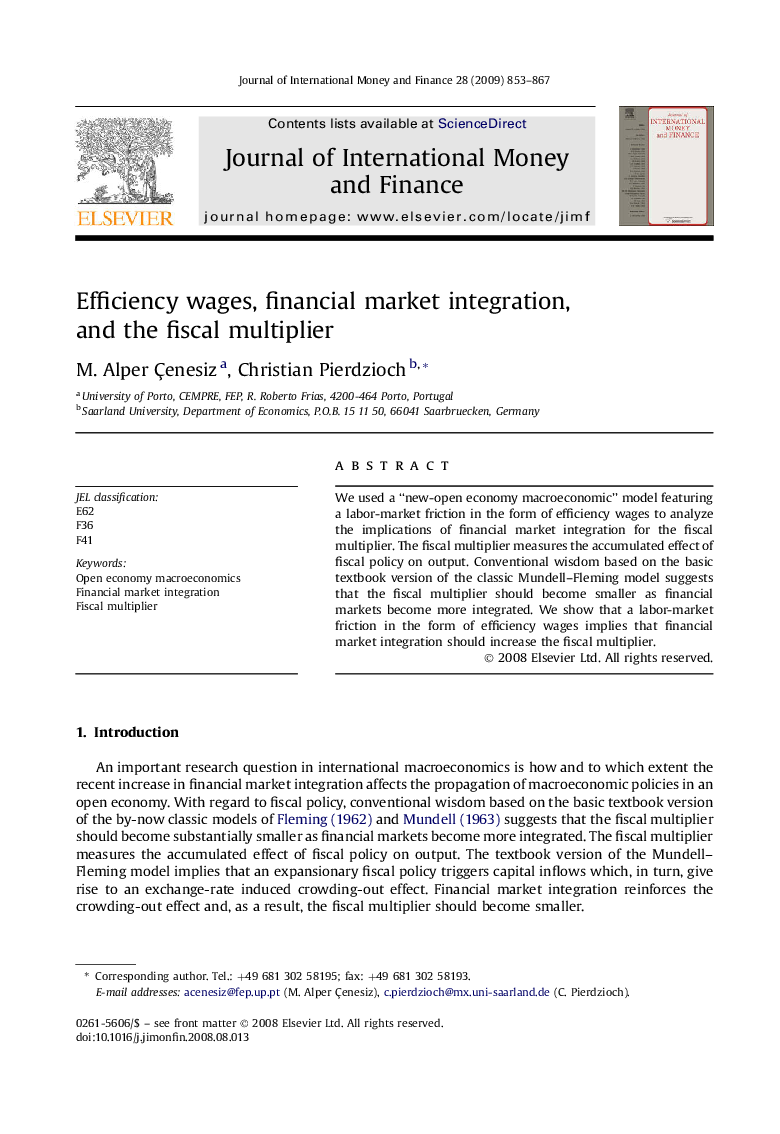| Article ID | Journal | Published Year | Pages | File Type |
|---|---|---|---|---|
| 964815 | Journal of International Money and Finance | 2009 | 15 Pages |
Abstract
We used a “new-open economy macroeconomic” model featuring a labor-market friction in the form of efficiency wages to analyze the implications of financial market integration for the fiscal multiplier. The fiscal multiplier measures the accumulated effect of fiscal policy on output. Conventional wisdom based on the basic textbook version of the classic Mundell–Fleming model suggests that the fiscal multiplier should become smaller as financial markets become more integrated. We show that a labor-market friction in the form of efficiency wages implies that financial market integration should increase the fiscal multiplier.
Related Topics
Social Sciences and Humanities
Economics, Econometrics and Finance
Economics and Econometrics
Authors
M. Alper Çenesiz, Christian Pierdzioch,
